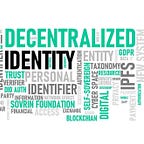분산 신원(DID)의 표준화를 위한 LOI(의향서) 체결 (Letter of Intent (LOI) to standardize decentralized identity (DID))
추진 배경 및 목적 (Background and purpose)
Decentralized Identifier (DID) Method 표준화를 목적으로 2024년 7월 30일자 체결된 LOI는 분산 디지털 신원 시스템의 상호운용성, 보안 및 사용자 통제를 보장하기 위해 DID Method 표준화가 중요하다는 인식 하에 작성되었습니다. 여기에는 Decentralized Identity Foundation (DIF), Trust Over IP (ToIP) Foundation, W3C Credentials Community Group, W3C Decentralized Identifier Working Group (DID WG)와 같은 주요 기관들이 참여했습니다.
(The LOI, dated July 30, 2024, for the purpose of standardizing a Decentralized Identifier (DID) Method, was created in recognition of the importance of standardizing a DID Method to ensure interoperability, security, and user control of decentralized digital identity systems. Key organizations involved include the Decentralized Identity Foundation (DIF), the Trust Over IP (ToIP) Foundation, the W3C Credentials Community Group, and the W3C Decentralized Identifier Working Group (DID WG).)
이 LOI의 주된 목표는 DID Method 표준화를 통해 현재와 미래의 다양한 DID Method의 사용을 촉진하고, 이들의 성숙도를 높임으로써 더 넓은 DID 생태계의 성장을 지원하는 것입니다. 이 표준화는 DID Method를 사용하는 기업과 조직들에게 유용한 지침과 테스트 도구를 제공하여 궁극적으로 더 넓은 상호운용성을 촉진하게 됩니다.
(The primary goal of this LOI is to support the growth of the broader DID ecosystem by facilitating the current and future use of various DID Methods through DID Method standardization, and by increasing their maturity. This standardization will provide useful guidance and testing tools for companies and organizations using DID Methods, ultimately facilitating broader interoperability.)
참여 기관 및 역할 (Participating Organizations and Roles)
이 LOI에는 여러 주요 기관들이 참여하고 있습니다: (Participating Organizations and Roles)
- Decentralized Identity Foundation (DIF)
- Trust Over IP (ToIP) Foundation
- W3C Credentials Community Group (CCG)
- W3C Decentralized Identifier Working Group (DID WG)
각 기관의 리더들은 DID Method 표준화가 성공적으로 이뤄질 수 있도록 협력하여 다양한 워킹 그룹을 구성하고, 공통의 표준화 기준과 테스트 도구를 개발하는 데 기여할 것입니다.
(Leaders from each organization will work together to ensure the success of the DID Method standardization, forming various working groups and contributing to the development of common standardization criteria and testing tools.)
참여자 명단 (Participants include)
- Kim Hamilton Duffy (Decentralized Identity Foundation)
- Judith Fleenor (Trust Over IP Foundation)
- Gabe Cohen (DID WG / TBD)
- Dan Burnett (DID WG)
- Manu Sporny (Digital Bazaar)
- Harrison Tang (W3C CCG / Spokeo)
- Stephen Curran (Cloud Compass Computing Inc.)
- Andrew Whitehead (Portage Cybertech Inc.)
- Ankur Banerjee (DIF / cheqd)
- Kerri Lemoie (MIT Digital Credentials Consortium)
- Markus Sabadello (DIF / Danube Tech)
- Kimberly Wilson Linson (W3C CCG / Level Data)
- Eike Haß (IOTA Foundation)
이 외에도 여러 DID Method 제작자, DID 표준화 인큐베이터 및 DID 수용자들이 참여할 예정입니다.
(In addition, several DID Method creators, DID standardization incubators, and DID adopters will be participating.)
추진 일정 (Timeline)
DID Method 표준화를 위한 이 LOI의 주요 추진 일정은 다음과 같습니다:
(The key milestones of this LOI for DID Method standardization are as follows)
- 2024년 8월 1일: 참여 기관들과의 협력 회의 개최 (Collaboration meeting with participating organizations.)
- 2024년 8월 31일: 다기관 협력 협약 제안 (Proposed multi-agency cooperation agreement)
- 2024년 9월 15일: 사전 초안 사양 제안 (Preliminary draft specification proposed)
- 2024년 10월 1일: 워킹 그룹 차터 제안 (Propose working group charters)
### ✍️참여 신청 (Sign up to be involved) ###
위 일정에 따라 각 기관은 협력을 통해 DID Method 표준화의 기초를 마련하고, 다양한 DID Method의 사양, 테스트 벡터 및 테스트 베드를 개발할 것입니다.
(Following this timeline, the agencies will lay the foundation for DID Method standardization through cooperative agreements and develop specifications, test vectors, and test suits for the various DID Methods.)
결론 (Conclusion)
DID Method 표준화를 위한 LOI는 분산 디지털 신원 시스템의 발전을 위한 중요한 이정표가 될 것입니다. 이를 통해 다양한 DID Method가 상호운용성과 안정성을 확보하여 널리 사용될 수 있게 될 것입니다. 각 참여 기관은 공동의 목표를 달성하기 위해 긴밀히 협력하며, 이는 궁극적으로 더 넓은 분산 디지털 신원 생태계의 발전에 기여할 것입니다.
(The LOI for DID Method standardization marks an important milestone in the evolution of distributed digital identity systems. It will ensure that the various DID Methods are interoperable and reliable so that they can be widely used. Each participating organization will work closely together to achieve common goals, which will ultimately contribute to the development of the broader distributed digital identity ecosystem.)
